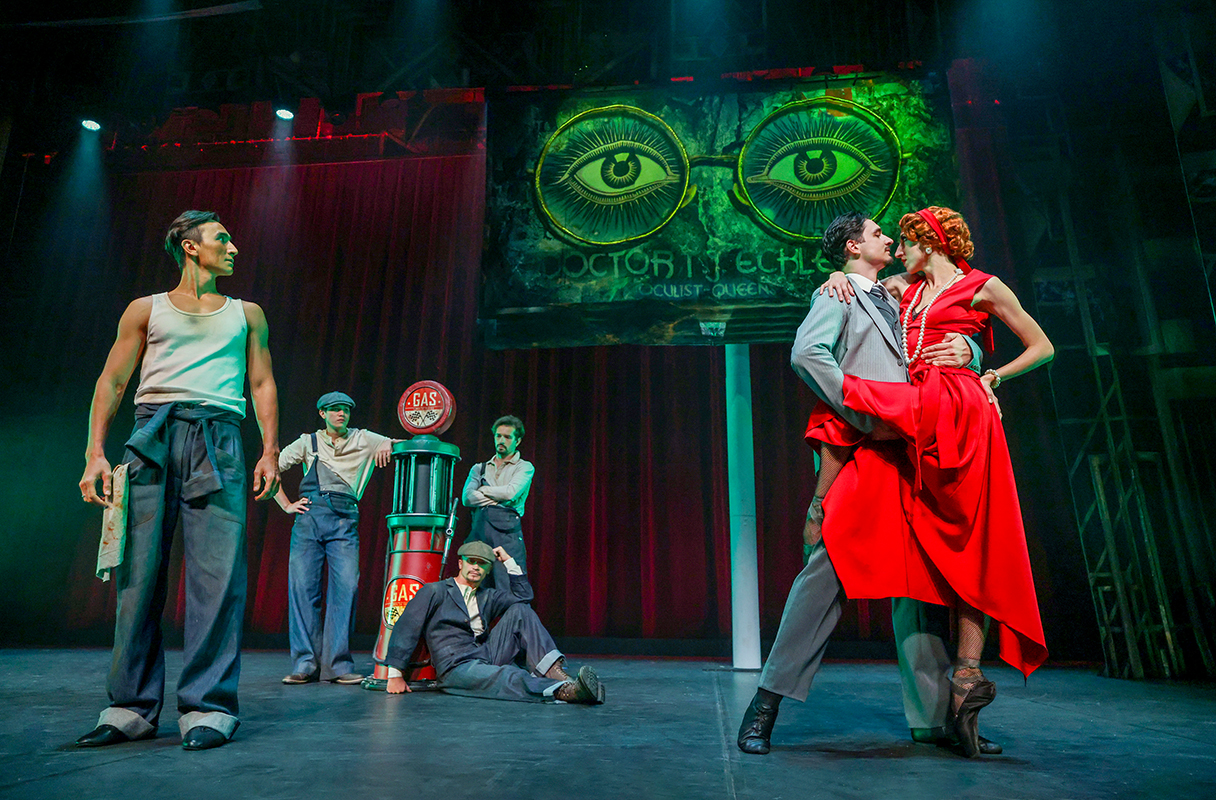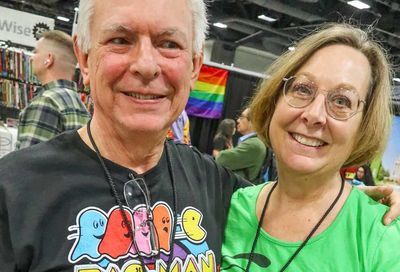Torture Garden
''The Addams Family'' is a torture -- not just for the characters onstage -- but for those audience members who choose to endure it
Slap some skates on Gomez, Morticia and company, ship ’em off to some suburban arena like the Patriot Center, and call it The Addams Family on Ice. At least that would honestly reflect the crass commercial aspirations of what’s shamefully masquerading as a Broadway musical right now at the Kennedy Center, and at least that would let any discerning theatergoer know what condition The Addams Family is in: dead on arrival.
No matter how many theatrical misfires I’ve seen over the years, I’ve never truly despaired for the musical itself as an art form. Until The Addams Family. That’s when a sickening realization crept over me: This is why some people despise musicals. This is why haters think people in musicals break into song for no good reason, and look ridiculous while doing so, and take forever to resolve the simplest of conflicts. And among the haters, evidence suggests, are the show’s creators themselves.

Addams Family
(Photo by Jeremy Daniel)
There is no love on display in librettists Marshall Brickman and Rick Elice’s treatment of the iconic characters that cartoonist Charles Addams introduced in The New Yorker and that went on to flourish on the small screen in the 1960s and the big screen in the 1990s. The stakes are so low and the assumptions so galling — Characterizations? Who needs ’em? You know these people; just pay your money and shut up — that you’re shocked to realize that Brickman and Elice are the writers behind an acclaimed and much more successful effort, the Four Seasons bio-musical Jersey Boys.
And there’s certainly no sense of affection from composer-lyricist Andrew Lippa, who entices the audience at the beginning and end of the show with snippets of the ”snap-snap” ’60s TV theme (good luck finding the credit for that composer, Vic Mizzy, deep in the small-print bowels of the program) but packs every musical moment in between with graceless, instantly forgettable tunes that ignore one of the very tenets of musicals: People should sing when there is no other way for them to express themselves. The emotions should be so strong, or the ideas and observations so clever, that speaking would be a disservice to the characters, the situations and the audience.
The ghoulish, otherworldly Addamses — Morticia and Gomez, children Wednesday and Pugsley, Uncle Fester, Grandma, plus butler Lurch — convey passion for both life and death, and a wholehearted rejection of societal norms. They are such over-the-top creations, they practically sing by their very existence. If they are going to so much as hum, it had better be for much more vital reasons than Brickman, Elice and Lippa ever come up with.
The central conflict is dismally pedestrian — barely enough to support a half-hour sitcom episode, much less a two and a half hour musical: Wednesday (Cortney Wolfson) is in love with a ”normal” college kid, Lucas (Brian Justin Crum), and they want to get married. (Why is Wednesday, portrayed as a young girl in other media, now suddenly of marriageable age? Don’t ask; if she weren’t, there would be no central conflict at all.) She wants Gomez (Douglas Sills) to keep this a secret from Morticia (Sara Gettelfinger), and she wants Lucas’s parents, Mal (Martin Vidnovic’s understudy, Patrick Oliver Jones) and Alice (Gaelen Gilliland), to come over for dinner.

To July 29
Kennedy Center
Opera House
$39-$115
202-467-4600
kennedy-center.org
So, um, yeah, that’s about it. The ill-fitting songs feel as though they’re meeting a quota in order for some regulatory board to certify this mess as a musical, and they rarely aspire to anything more than clumsily rhyming reiteration of what the characters have just told us. (There’s Gomez, telling us how conflicted he is over keeping a secret from Morticia. Oh look, there’s Gomez, singing about how conflicted he is over keeping a secret from Morticia. Please, Gomez, stop singing.)
Directorial blame is tricky to pinpoint. Phelim McDermott and Julian Crouch share an ”original direction” credit, as well as credit for costumes and the set (a dull, unevocative exercise if there ever was one), but veteran Broadway hitmaker Jerry Zaks gets an ominous credit — ”entire production under the supervision of” — that makes you pity him for having to associate his name with such a responsibility, yet also makes you want to lock him into one of the torture devices with which the Addamses like to decorate their home.
Among the mostly insipid performances, Sills comes closest to redeeming himself, through momentary displays of comic gusto and enough emotional resonance that might actually justify singing, if he were only given any worthwhile musical material. Ultimately, though, everyone involved in this Addams Family is laboring under a tragic misconception: that the people in the theater who wish to experience pain, suffering and woe include not only the characters onstage, but the audience, too.
Support Metro Weekly’s Journalism
These are challenging times for news organizations. And yet it’s crucial we stay active and provide vital resources and information to both our local readers and the world. So won’t you please take a moment and consider supporting Metro Weekly with a membership? For as little as $5 a month, you can help ensure Metro Weekly magazine and MetroWeekly.com remain free, viable resources as we provide the best, most diverse, culturally-resonant LGBTQ coverage in both the D.C. region and around the world. Memberships come with exclusive perks and discounts, your own personal digital delivery of each week’s magazine (and an archive), access to our Member's Lounge when it launches this fall, and exclusive members-only items like Metro Weekly Membership Mugs and Tote Bags! Check out all our membership levels here and please join us today!























